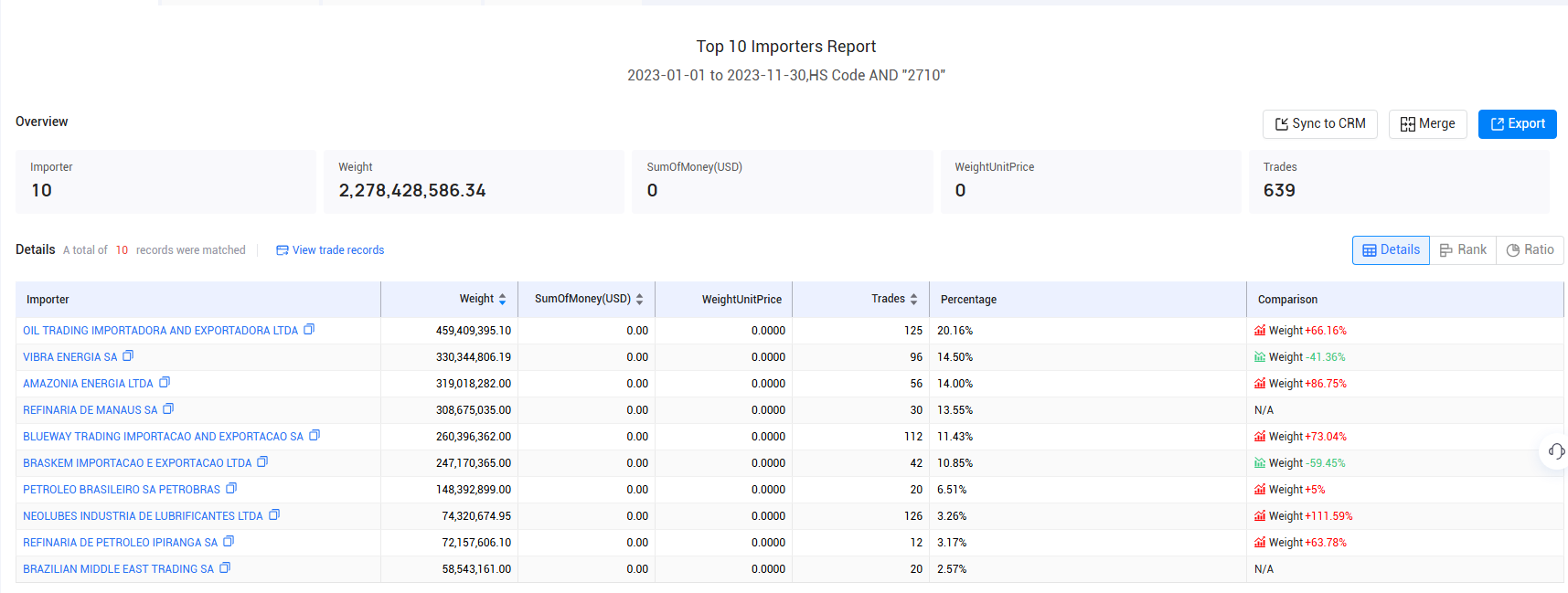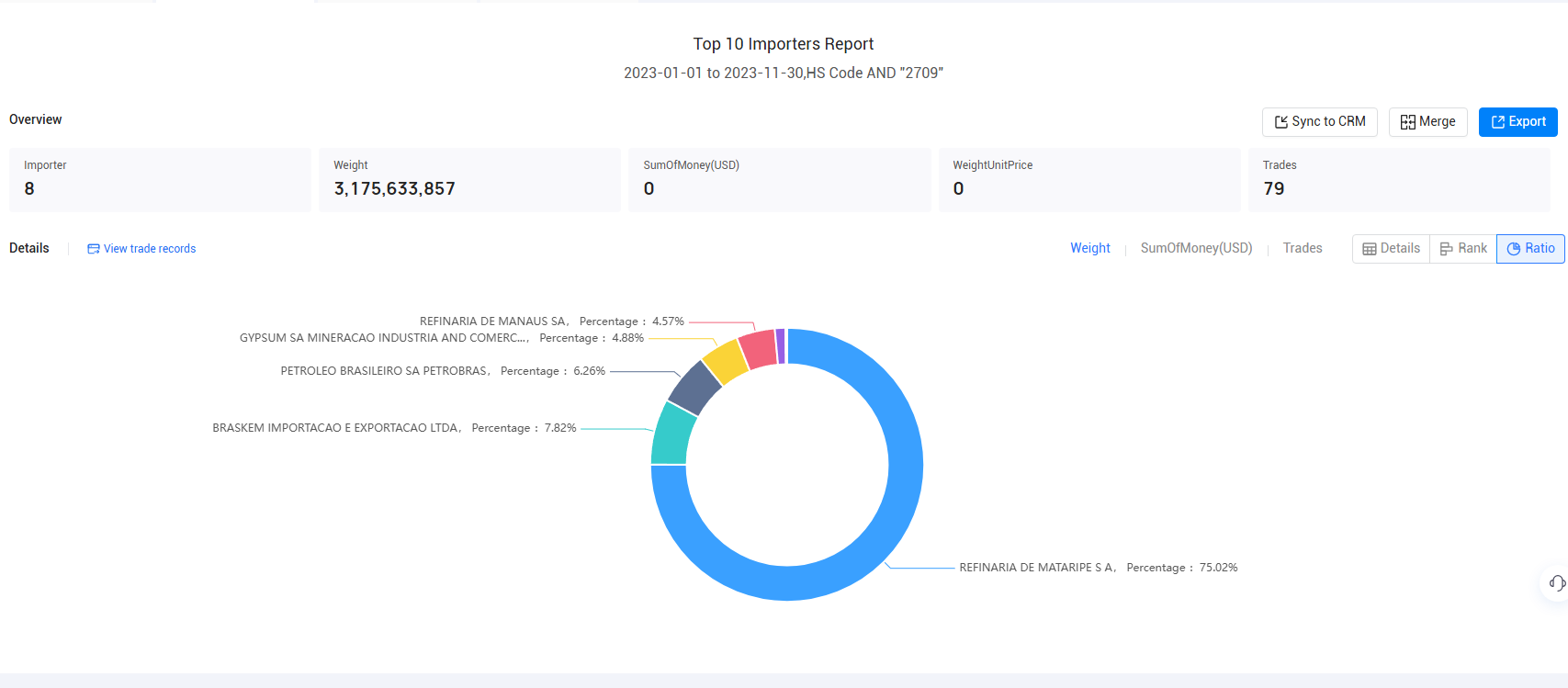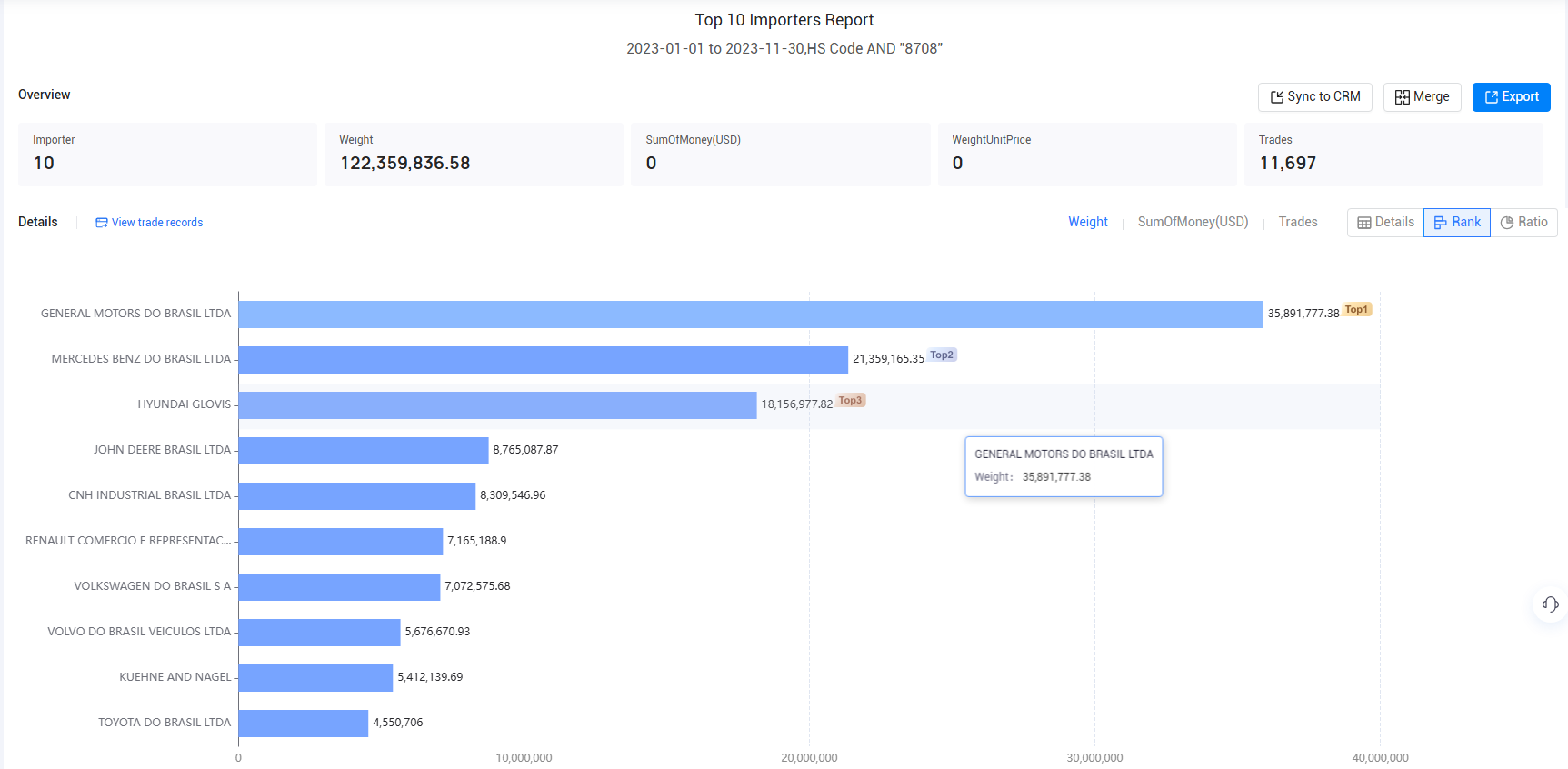 Market Insights
Market Insights
 07-11-2024
07-11-2024
Brazil, as the largest economy in Latin America, is a key player in international trade. Its import data provides valuable insights into the country's economic health, trading relationships, and market demands. With an increasingly globalized economy, understanding Brazil's import data is essential for businesses, investors, and policymakers alike.

Trends in Brazil's Imports
In recent years, Brazil's import data has highlighted some key trends that reflect the country's evolving economic structure. Brazil's major imports include machinery, electronic equipment, chemicals, and automotive products. The demand for high-tech and industrial products has been growing, especially as Brazil modernizes its infrastructure and industrial capacity. Additionally, the country's need for agricultural and food products has spiked, reflecting Brazil's significant role as both a consumer and exporter of agricultural goods.
According to Brazilian import data, China remains Brazil's largest trading partner, with machinery, electronics, and chemicals being some of the primary imports. The United States, Germany, and Argentina are also among Brazil's top suppliers. The diversification of sources, combined with shifts in product demand, is an important aspect of Brazil's import data, showcasing how global market dynamics influence Brazilian trade.

>>Click There for more trade data<<
Why Brazil's Import Data Matters
Brazil's import data is not just a reflection of what the country buys from abroad—it is a critical tool for businesses looking to enter the Brazilian market, suppliers analyzing potential opportunities, and government bodies making policy decisions. By analyzing this data, companies can better understand Brazil's market demands, identify emerging industries, and tailor their products to local preferences. Brazilian import data helps businesses forecast demand, manage supply chains, and adjust pricing strategies accordingly.
For investors, this data offers a deeper look into the economic priorities of Brazil. For example, a surge in imports of capital goods could signal growth in the manufacturing sector, providing investment opportunities in related industries. On the flip side, fluctuations in imports of consumer goods can indicate changing economic conditions, such as periods of recession or economic expansion.

>>Click here for more information<<
The Role of Data Analytics in Brazil's Imports
As with many global markets, Brazilian import data is vast and complex. However, with advanced data analytics tools, businesses can harness this information to make smarter, more strategic decisions. Data analytics allows stakeholders to filter, process, and analyze import data with greater speed and accuracy. By using machine learning algorithms and data visualization tools, businesses can identify trends, spot emerging opportunities, and mitigate risks.
Tendata can track shifts in product categories or geographic regions, helping businesses anticipate changes in Brazil's import patterns. These insights can inform decisions about which products to source, where to establish partnerships, and how to optimize the supply chain.
Moreover, Tendata makes it easier to predict future import trends by analyzing historical data and economic indicators. Companies can use predictive analytics to determine the potential impact of changes in Brazil's trade policies, currency fluctuations, or global market shifts on their operations.
>>Contact Tendata for more trade data<<
Leveraging Brazilian Import Data for Competitive Advantage
The ability to effectively analyze and interpret Brazil's import data can give businesses a competitive edge. Exporters looking to enter the Brazilian market can gain insights into demand gaps and tailor their offerings to meet local needs. Conversely, Brazilian companies seeking to optimize their import strategies can use this data to negotiate better deals, identify cost-saving opportunities, and diversify their supply sources.

Conclusion
Brazilian import data provides key insights into its economic dynamics, trade relationships, and consumer behavior. By analyzing trends and patterns, businesses can navigate the complexities of the Brazilian market and make informed decisions. Data analytics plays a crucial role, helping companies extract valuable insights, predict trends, and stay competitive. As Brazil's global economic influence grows, the importance of import data in shaping business strategies will continue to rise. For businesses seeking to deepen their insights into import trends and optimize their market strategies, Tendata is the ultimate solution to help you stay ahead of the curve. >>Contact Tendata for further information<<
Category
Leave Message for Demo Request or Questions


 T-info
T-info T-discovery
T-discovery

 My
Tendata
My
Tendata Market Analysis
Market Analysis Customer
Development
Customer
Development Competitor
Monitoring
Competitor
Monitoring Customer Relationship
Customer Relationship





































































































































